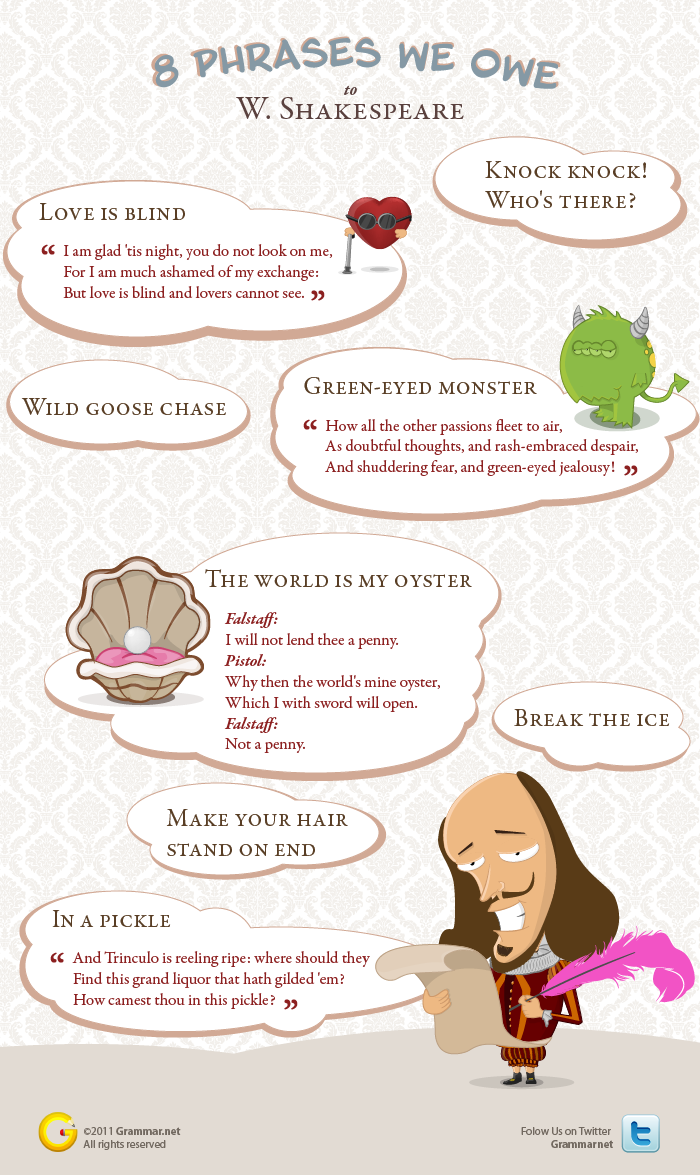William Shakespeare (1564-1616) is universally acknowledged to be the greatest storyteller (playwright, poet and more rolled into one) of all time. On Grammar.net, I found an interesting infographic on some everyday phrases that were first penned by the Bard of Avon.
Before you check the infographic, savour this masterpiece from a sonnet written by Shakespeare (Sonnet 116; read the complete version here).
Love's not Time's fool, though rosy lips and cheeks

Before you check the infographic, savour this masterpiece from a sonnet written by Shakespeare (Sonnet 116; read the complete version here).
Love's not Time's fool, though rosy lips and cheeks
Within his bending sickle's compass come:
Love alters not with his brief hours and weeks,
But bears it out even to the edge of doom.
If this be error and upon me proved,
I never writ, nor no man ever loved.

Knock knock! Who’s there?
In Macbeth, a porter speaks a comic monologue which follows the pattern of “knock knock” jokes, but it is done entirely by the character, with knocking sounds from off-stage. The porter imitates a doorkeeper of hell, welcoming sinners of various occupations.
[Knocking within.] Knock, knock, knock! Who’s there, i’ the name of Beelzebub? Here’s a farmer that hanged himself on the expectation of plenty: come in time; have napkins enough about you; here you’ll sweat for ’t.
Wild goose chase
A hopeless undertaking, the first recorded use is from Romeo and Juliet.
Romeo: Switch and spurs, switch and spurs; or I’ll cry a match.
Mercutio: Nay, if thy wits run the wild-goose chase, I have done, for thou hast more of the wild-goose in one of thy wits than, I am sure, I have in my whole five.
Break the ice
This phrase appears in The Taming of the Shrew and refers to meeting someone for the first time. Breaking the ice gently unlocks the conversation, such as by asking questions about the other person.
Make your hair stand on end
Fear causes this sensation, and in Hamlet, Shakespeare turned it into one of his most popular sayings.
Fear causes this sensation, and in Hamlet, Shakespeare turned it into one of his most popular sayings.
I could a tale unfold, whose lightest word would harrow up thy soul, freeze thy young blood, make thy two eyes, like stars, start from their spheres, thy knotted and combined locks to part and each particular hair to stand an end, like quills upon the fretful porpentine.
[Text for the explanation of the above four phrases and the infographic are provided by Grammar.net]









